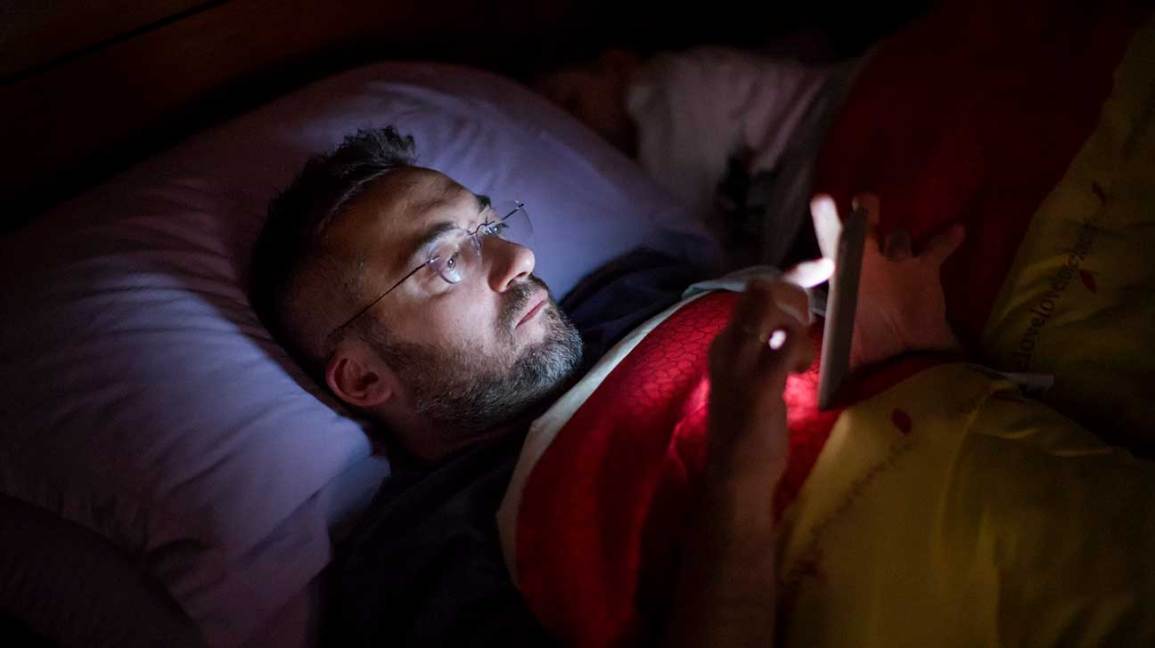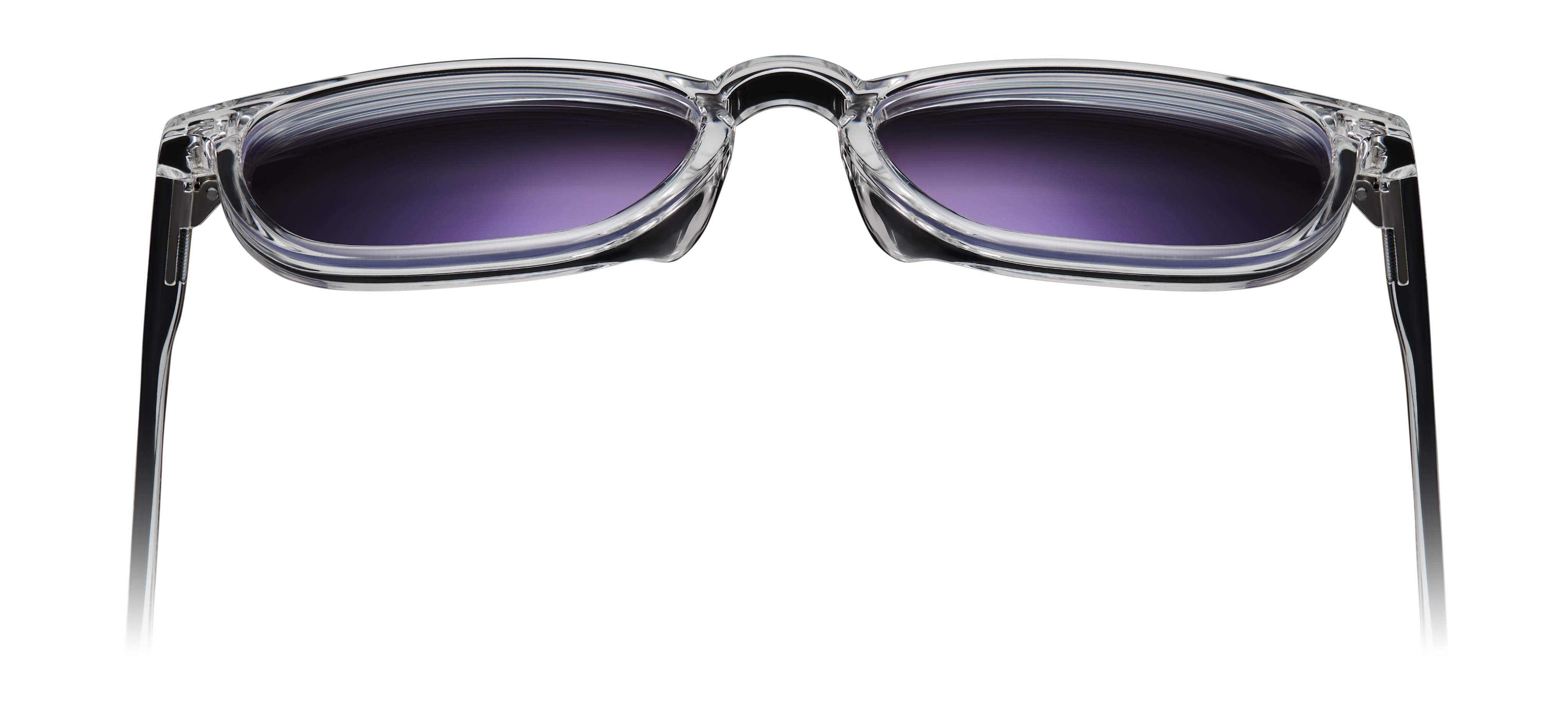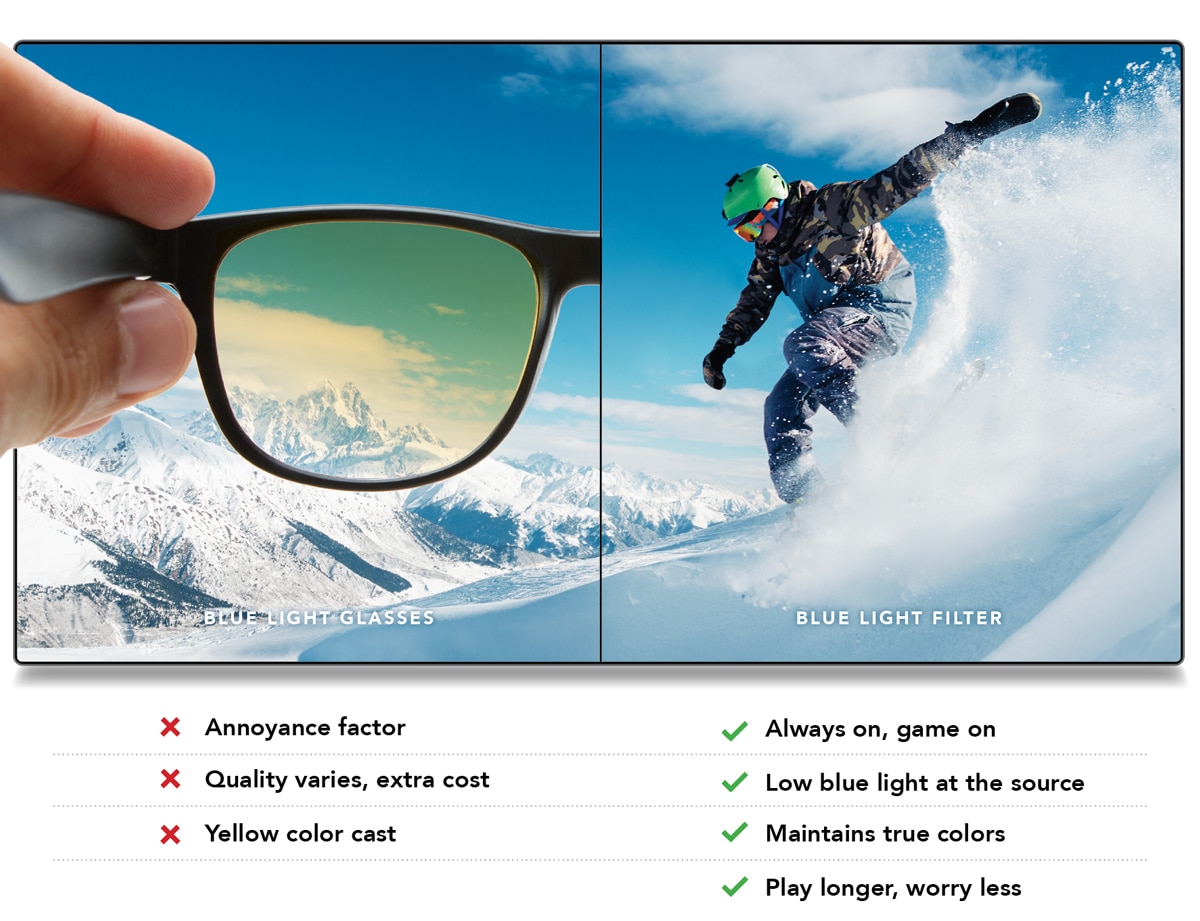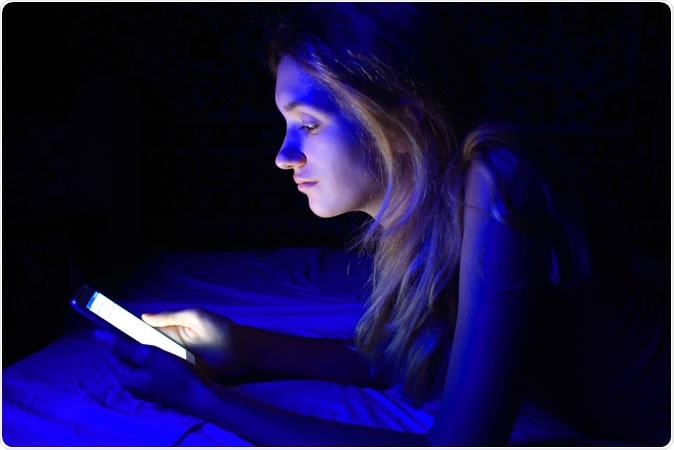Physical Address
304 North Cardinal St.
Dorchester Center, MA 02124

Blue light exposure can negatively impact sleep and eye health. It disrupts the sleep-wake cycle and can lead to eye strain, dryness, and potential long-term damage to the retina and macula.
This article will explore the specific effects of blue light on sleep patterns and eye health, along with practical tips to minimize its impact. Understanding the implications of blue light exposure is crucial in today’s digital age, where screens and devices are an integral part of our daily lives.
By taking proactive measures, individuals can prioritize their sleep and preserve their eye health in the long run.

Blue light exposure can affect both sleep quality and eye health, potentially disrupting your sleep patterns and leading to eye strain and fatigue. Understanding the impact of blue light can help you take steps to protect your eyes and promote healthier sleep habits.
Blue light is a type of high-energy visible (HEV) light that is emitted by electronic devices, energy-efficient light bulbs, and the sun. Although exposure to natural blue light during the day can enhance mood and improve cognitive function, excessive and prolonged exposure to artificial blue light can have detrimental effects on sleep and eye health.
Blue light is a short wavelength light that has the highest energy in the visible light spectrum. It is present everywhere in our environment, and while it is naturally emitted by the sun, it is also emitted by digital screens such as smartphones, tablets, laptops, and televisions.
The primary sources of blue light exposure include:
1. Sunlight: The sun is the most significant source of blue light. However, it is important to note that a moderate amount of natural blue light during the day helps to regulate our sleep-wake cycle.
2. Electronic Devices: The use of electronic devices, such as smartphones, tablets, and computers, exposes us to artificial blue light. Prolonged use of these devices, especially before bedtime, can suppress the production of melatonin, a hormone that promotes sleep.
3. Energy-Efficient Light Bulbs: Energy-efficient light bulbs, such as LED and fluorescent lights, emit a higher intensity of blue light compared to traditional incandescent bulbs. These bulbs are commonly used in homes, offices, and various public spaces.
While blue light exposure from these sources is something we encounter in our daily lives, it is important to be mindful of the potential impact it can have on our sleep and eye health. Implementing strategies to minimize blue light exposure, especially in the evenings, can help mitigate these effects.
References:
1. American Academy of Ophthalmology. (n.d.). How blue light affects your eyes.
2. Harvard Health Publishing. (2021). Blue light has a dark side.

Credit: www.zennioptical.com
Blue light exposure can negatively impact sleep and eye health. Studies suggest that prolonged exposure to blue light from electronic devices can disrupt melatonin production, leading to difficulty falling asleep and poor sleep quality. Additionally, it may contribute to eye strain, dryness, and potential long-term damage to the retina.
Blue light, emitted by electronic devices such as smartphones, tablets, and computers, can have a significant impact on our sleep patterns. The exposure to this artificial light can disrupt our natural circadian rhythm, which is responsible for regulating our sleep-wake cycle. When exposed to blue light in the evening or at night, the brain is tricked into believing it is still daytime, making it difficult to fall asleep.
This disruption of the circadian rhythm can have short-term and long-term effects on our overall sleep quality. In the short term, it can lead to difficulty falling asleep, restlessness during the night, and even insomnia. In the long term, consistent exposure to blue light at night can result in chronic sleep deprivation, leading to a range of health issues.
Another significant effect of blue light on sleep is its ability to suppress the production of melatonin, a hormone that regulates our sleep-wake cycle. Melatonin is essential for promoting feelings of sleepiness and preparing our body for rest. However, when exposed to blue light, particularly in the evening hours, the production of melatonin is reduced, making it harder for us to fall asleep.
Research has shown that even a brief exposure to blue light can inhibit melatonin production for several hours, making it more challenging to achieve restful sleep. This suppression of melatonin not only disrupts our sleep patterns but can also affect our overall health and well-being. A consistent lack of quality sleep due to reduced melatonin levels can lead to fatigue, decreased cognitive function, and an increased risk of various health conditions.
Excessive blue light exposure can disrupt sleep patterns and lead to eye strain or potential damage to eye health. Protecting your eyes from blue light is crucial for maintaining optimal eye health and ensuring proper sleep.
Excessive exposure to blue light emitted by digital devices has become a growing concern in recent years. This type of light, which is emitted by a variety of electronic screens including smartphones, tablets, and computers, can have a significant impact on both sleep patterns and eye health. In this section, we will explore the effects of blue light on eye health, focusing on two key areas: digital eye strain and the increased risk of macular degeneration.
The prolonged use of digital devices can lead to a condition known as digital eye strain. This occurs due to the constant focusing and refocusing of the eyes on a screen, as well as the high-intensity blue light that is emitted. Symptoms of digital eye strain can include dry eyes, blurred vision, eye fatigue, and headaches. When exposed to blue light for extended periods, the eyes can become strained and overworked, leading to discomfort and reduced visual performance.
Another significant concern associated with exposure to blue light is the increased risk of macular degeneration. The macula is the part of the retina responsible for sharp central vision, and prolonged exposure to blue light can cause damage to the cells in this area. Over time, this can lead to a deterioration of vision and potentially the development of macular degeneration, a leading cause of blindness in the elderly.
Several scientific studies have established a link between blue light exposure and an increased risk of macular degeneration. The high-energy blue light can penetrate deep into the eye and cause oxidative stress, which damages the cells in the macula. This stress can accelerate the aging process of the eyes and increase the likelihood of developing macular degeneration.
It is important to note that not all blue light is harmful to the eyes. Blue light emitted by the sun, for example, plays a crucial role in regulating our sleep-wake cycle and boosting mood and alertness. However, the prolonged and excessive exposure to artificial blue light from digital devices without proper protection can have detrimental effects on eye health.
To mitigate the impact of blue light on eye health, individuals can take several measures. These include reducing screen time, using blue light filters or protective eyewear, and ensuring proper lighting and ergonomics when using electronic devices. By adopting these practices, it is possible to minimize the negative effects of blue light and promote healthier eyes.

Credit: eyesafe.com
There are several steps you can take to reduce your exposure to blue light and safeguard your sleep and eye health. Adopting these practices can help minimize the negative effects of blue light:
Making simple adjustments to your daily routine can significantly reduce your exposure to blue light. Here are some effective strategies:
An excellent way to protect yourself from excessive blue light exposure is to utilize blue light filters. These filters can be applied across various devices and provide an added layer of protection. Here’s how you can use them:
By employing these blue light filters, you can reduce the amount of blue light reaching your eyes, thus improving your sleep quality and maintaining optimal eye health.

Credit: www.news-medical.net
Yes, blue light exposure from screens can disrupt your sleep by suppressing the production of melatonin, a hormone that regulates sleep-wake cycles. Avoiding screens before bedtime or using blue light filters can help improve your sleep quality.
Prolonged exposure to blue light can cause digital eye strain, dryness, and discomfort. High-energy blue light may also contribute to the development of age-related macular degeneration, a leading cause of vision loss. Wearing blue light-blocking glasses or adjusting screen settings can help protect your eyes.
Yes, blue light emitted by electronic devices can suppress the production of melatonin, making it difficult to fall asleep. Avoiding screen time before bed and using night mode on devices can help reduce the risk of insomnia and improve your sleep patterns.
Excessive exposure to blue light emitted by electronic devices can disrupt your sleep patterns and negatively affect your eye health. By implementing strategies like using blue light filters or reducing screen time before bed, you can mitigate the impact on your overall well-being.
Prioritizing good sleep and taking care of your eyes will contribute to your overall health and quality of life.

